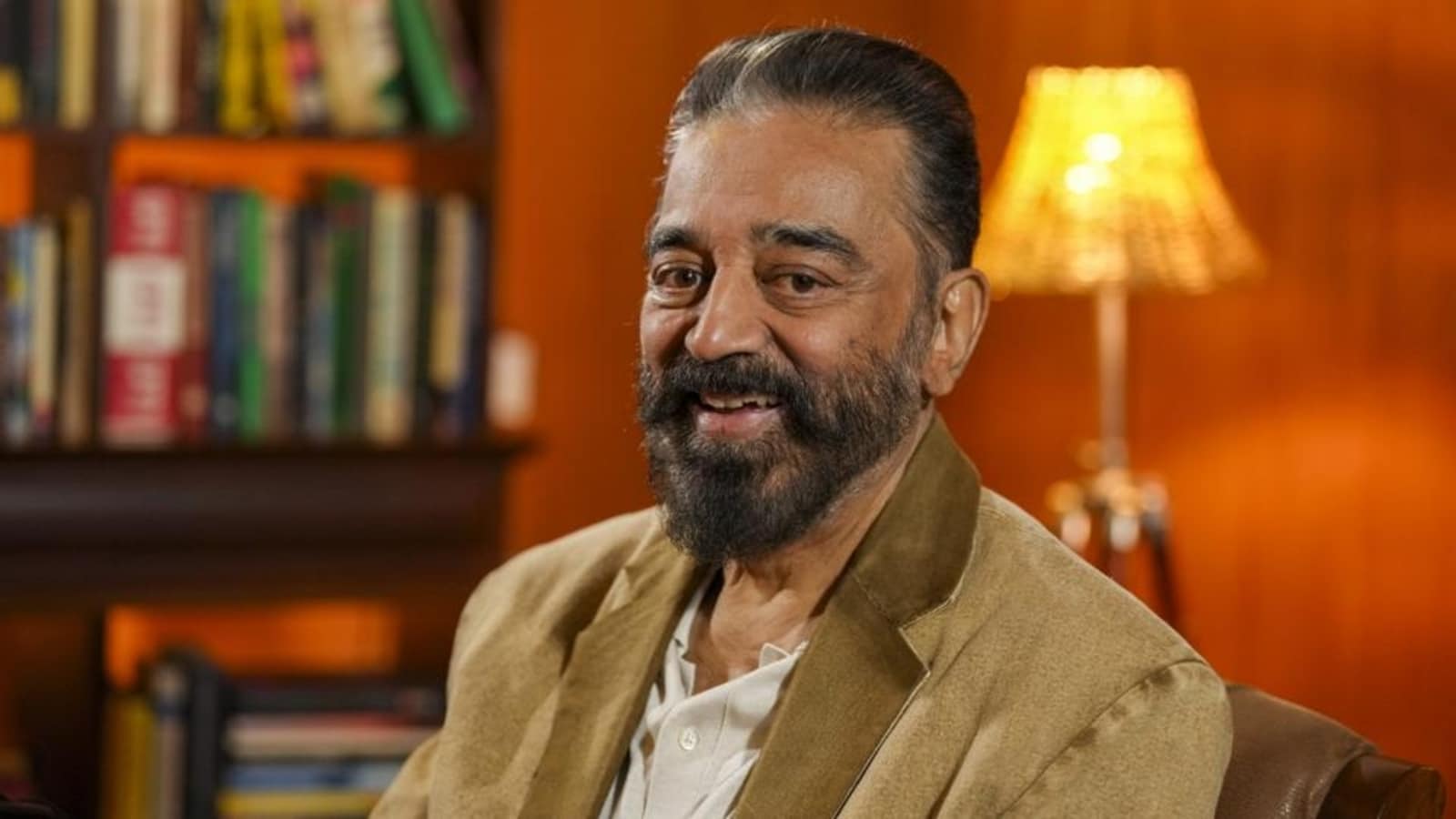Kamal Haasan Weighs In on Hindi Imposition Controversy in Tamil Nadu

Amid ongoing discussions surrounding his recent comments on the linguistic superiority of Tamil over Kannada, veteran actor Kamal Haasan has reignited the debate on Hindi imposition in Southern India. In a recent interview with PTI, Haasan emphasized the need for linguistic freedom and inclusivity, particularly in education and employment. His remarks come at a time when his upcoming film, Thug Life, faces challenges in its release in Karnataka due to his earlier statements.
Kamal Haasan’s Stance on Language Imposition
Kamal Haasan’s latest comments reflect a broader concern regarding the imposition of Hindi in Southern states. He articulated that education should be free from forced language learning, advocating for a more organic approach to language acquisition. “Without imposition, we will learn. Don’t impose, because this is ultimately education and we must take the shortest route to education… and not put hurdles in its way,” he stated. His remarks resonate with sentiments expressed by various states that have historically resisted Hindi imposition, including Punjab and Karnataka. Haasan’s solidarity with these regions underscores a collective resistance against perceived linguistic dominance.
The Role of English in Modern India
In his discussion, Haasan also highlighted the practicality of English as a medium of communication and education in India. He noted that the country has a long history of English education, which has established it as a neutral language. “And English seems to be fair enough. You can do Spanish also, or Chinese. But I think the most practical thing where the shortest route to that is that we have 350 years of English education,” he explained. Haasan warned that abruptly replacing English with Hindi could lead to widespread illiteracy, particularly in Tamil Nadu, where many people rely on English for educational and professional opportunities.
Concerns Over Employment and Language Rights
Haasan raised critical questions about the implications of Hindi imposition on employment opportunities for non-Hindi speakers. He expressed concern that mandating Hindi could alienate individuals from job prospects beyond the Vindhyas, leading to feelings of disenfranchisement. “You suddenly force all through Hindi and you tell them that you will not get your job beyond the Vindhyas, then you start wondering, what about the promises? What about my language? Am I not one of the 22 (official languages)?” he queried. These questions reflect a growing unease among various linguistic communities regarding their rights and representation in a multilingual nation.
Impact on National Language Politics
Kamal Haasan’s comments have added a new dimension to the ongoing national discourse on language politics in India. As the debate continues, the implications of his statements on regional tensions and linguistic identity remain to be seen. His call for respect, choice, and practicality in language use resonates with many who advocate for a more inclusive approach to linguistic diversity in the country. Whether his remarks will foster dialogue or exacerbate existing tensions is uncertain, but they undoubtedly highlight the complexities of language politics in contemporary India.
Observer Voice is the one stop site for National, International news, Sports, Editor’s Choice, Art/culture contents, Quotes and much more. We also cover historical contents. Historical contents includes World History, Indian History, and what happened today. The website also covers Entertainment across the India and World.
Follow Us on Twitter, Instagram, Facebook, & LinkedIn

